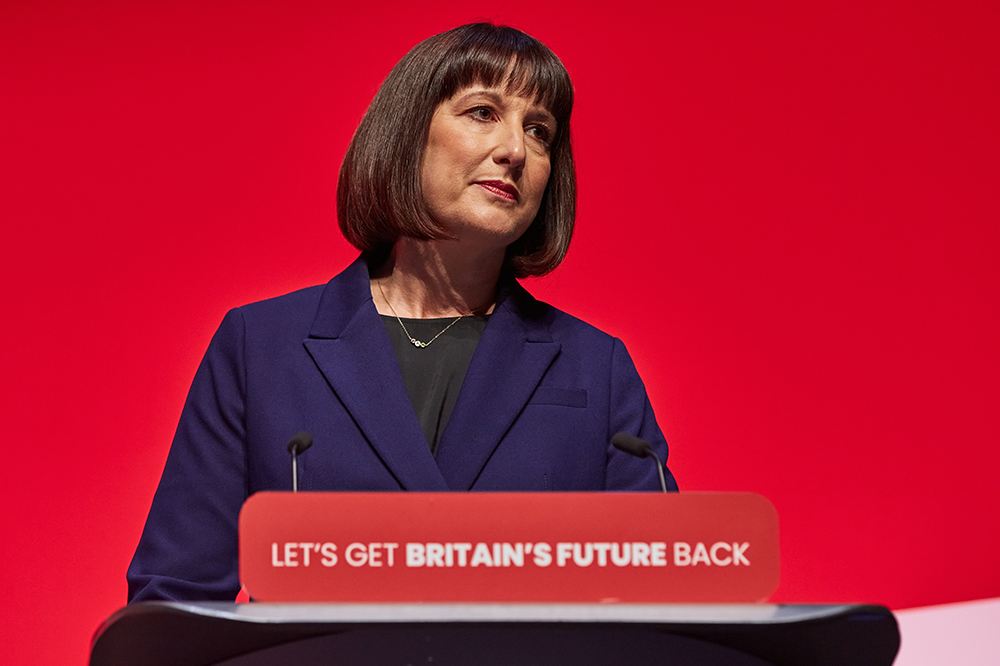The chancellor’s determination to remove the burden of regulation is not what responsible businesses or the public say they want, says Nick Hughes.
“Today we are taking further action to free businesses from the shackles of regulation. By cutting red tape and creating a more effective system, we will boost investment, create jobs and put more money into working people’s pockets.”
Such statements used to tumble out of the mouths of ministers with reliable regularity during 14 years of Conservative rule. The words felt rather more incongruous coming as they did last week from a Labour chancellor of the exchequer. Labour has historically been the party that has stood firmly behind the need for public protection when the deregulatory dog whistle has periodically sounded. Yet it’s a mark of the party’s drift rightwards since taking power in July that Rachel Reeves’s broadside ahead of a meeting with top regulator bosses, including the Environment Agency and Natural England, came as little surprise.
A party that put green growth at the heart of its election campaign continues to confuse its colour palette. A pledge to spend £28bn on the green economy was ditched before Reeves set foot in No.11 Downing Street. Since then, Heathrow Airport expansion has been given the green light, new licences for oil fields are reportedly due to be granted, funding for sustainable farming has been axed and now Reeves has environmental regulations, including biodiversity net gain, in her crosshairs.
Her latest combative comments came ahead of the unveiling of a government action plan to cut red tape and kickstart the economy by, among other things, speeding up planning decisions for major infrastructure projects.
That means clearing all perceived obstacles to growth. In her short time in No.11, the chancellor has cultivated a particular dislike for bats, about whom no fewer than five disparaging references were made in the HM Treasury press release heralding the “radical action plan”. Along with newts (mercifully spared from Reeve’s ire on this occasion) the unassuming bat has become the unwitting emblem of a regulatory system that thwarts infrastructure projects and damages businesses and communities, at least according to Labour’s narrative.
Better regulation
Few would argue that among the thousands of rules and regulations that make up the UK statue book there are some that could be removed, streamlined or improved with little negative effect.
A commitment to better regulation, rather than a binary more or less approach, can also unlock growth opportunities in new innovations. The Food Standards Agency, for example, is currently working with experts to design a regulatory approach for cell-cultivated products that priorities consumer safety while creating a transparent, smooth approvals process for novel products like cultivated meat. Earlier this month, the FSA announced the list of stakeholders who have been selected to participate in its collaborative sandbox programme including businesses, academics and trade bodies. Experts believe it’s not impossible that products start to be approved by the end of the year.
The challenge, as always, lies in identifying where superfluous or unnecessarily convoluted rules exist and how they can be safely erased or made better.
Under Labour’s new plan, businesses “stand to save billions”, according to the government, as regulators are axed and core legal duties are streamlined. Forgive my cynicism but that strikes me as wildly optimistic. Blanket, untargeted calls to cut ‘red tape’ are almost never successfully delivered. David Cameron’s infamous ‘red tape challenge’ launched in 2011 succeeded only in increasing the cost of regulation by £3.1bn, according to later analysis.
The tone of Reeves’s statement suggests she has succumbed to the pervasive government mantra that regulation is by its nature burdensome and that cutting it is a shortcut to economic growth. Worse still, she’s quickly fallen into the trap of seeing investment in nature and the environment as being an inevitable drag on the nation’s finances, despite comprehensive analysis (such as the Dasgupta Review) to the contrary.
Border farce
Good regulation, properly enforced serves an important purpose in keeping the public safe and ensuring responsible businesses can compete on a level playing field.
This is especially true in the case of food. Fears have recently been raised by health experts over the high volume of unsafe meat entering the UK from Europe. In the first two days of February alone, Dover Port Health Authority (DPHA) removed almost four tonnes of illegal meat products that had crossed the channel, despite the team operating at just 20% capacity due to resource constraints.
Food safety experts have long warned that a post-Brexit UK could become a target for illegal meat due to lax and underfunded border controls. The evidence suggests that holes in the UK’s new border regime – which was consistently delayed under the Conservative government – are now being exploited by criminals and opportunists. “If we are not there [at the border], this stuff is going out on the shelves,” DPHA head Lucy Manzano told the Environment, Food & Rural Affairs (Efra) Committee inquiry into whether the UK’s biosecurity measures for plant and animal imports are strong enough. “You may well be going out for dinner in normal-looking establishments and be consuming meat that has not been correctly processed,” she warned. These are the everyday risks you take as a government when you prioritise penny pinching over public protection.
More fundamentally, by pitching nature into competition with the economy experts warn Labour risks undermining the growth it has bet its house on in government. “Wildlife is in dire straits and we need a more joined-up approach to restoring and protecting the natural world for the good of our pollinators, rivers and sea,” said Becky Pullinger, head of land use planning at The Wildlife Trusts recently. “Without this there will be no food, no drinking water, nor clean air – there is no such thing as prosperous growth if these are under threat.”
Business beacons
Reeves’s deregulatory drive also seems to miss the mark where businesses are concerned. Far from being intractably opposed to new regulations and standards, some of the more enlightened businesses in the food sector are actively urging Labour to go further and faster.
In May last year, leaders of businesses including Bidfood, Arla and Danone joined NGOs in signing the Hope Farm statement, which called for the adoption of clear and legally binding national food systems targets alongside tighter regulation on unhealthy food, and mandatory nutrition and sustainability standards for all public food procurement.
Later in the year, an even larger cohort of businesses including Tesco, Nestlé and Compass Group urged the government to require companies to publicly report their food waste data – an uncontentious and long promised policy that both the Conservatives and now Labour have inexplicably failed to enact.
Nor does the public want to see politicians clear the path for businesses to act as they please. Interim findings from the Food, Farming and Countryside Commission-led ‘food conversation’, the UK’s largest-ever public dialogue about the food system, found strong support among citizens for interventions such as legally binding health and sustainability standards for public sector food, rules for fair dealing between retailers and food producers, and stricter restrictions on junk food advertising.
A new poll commissioned by WWF ahead of this year’s Earth Hour, meanwhile, revealed strong public support for government action on the environment and nature, with 52% of people saying that the UK government is not doing enough to protect it compared with just 12% who believe it is doing too much.
Reeves might genuinely believe her war on red-tape will benefit businesses and communities. But the real winners may ultimately prove to be her political rivals whose strident ideological views the once ‘green’ chancellor now seems determined to ape. Bats (and newts) better be on the lookout.










Leave a Reply